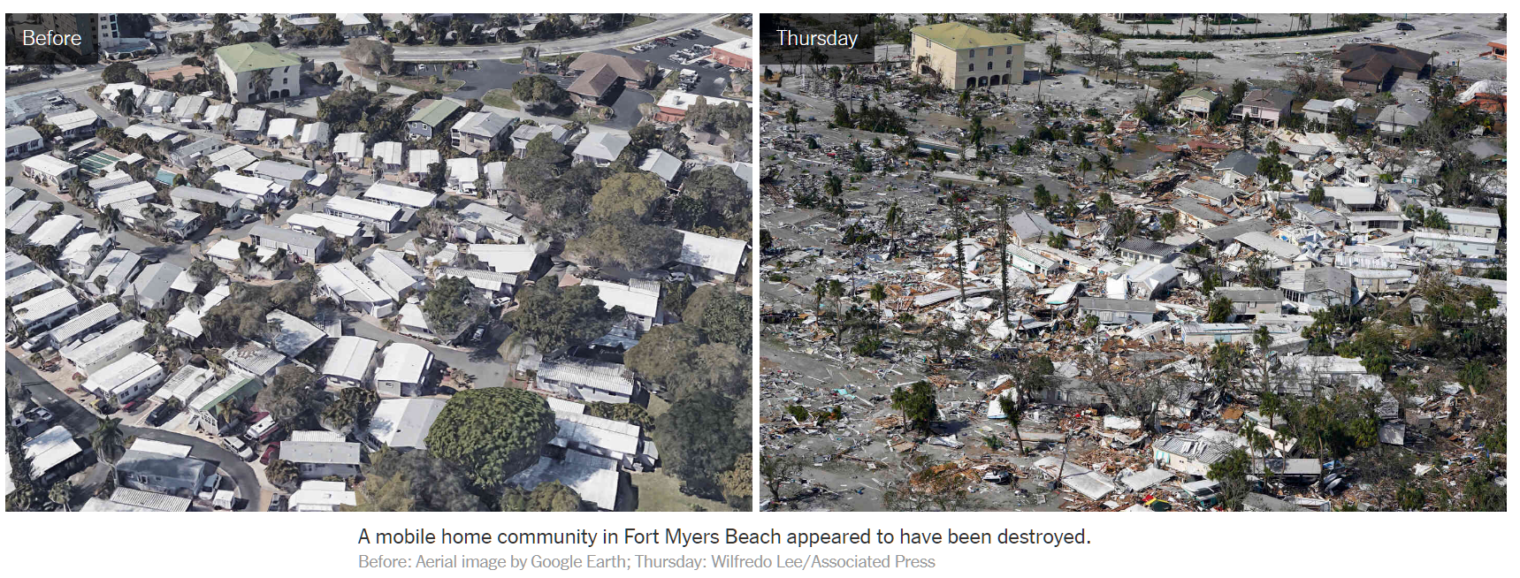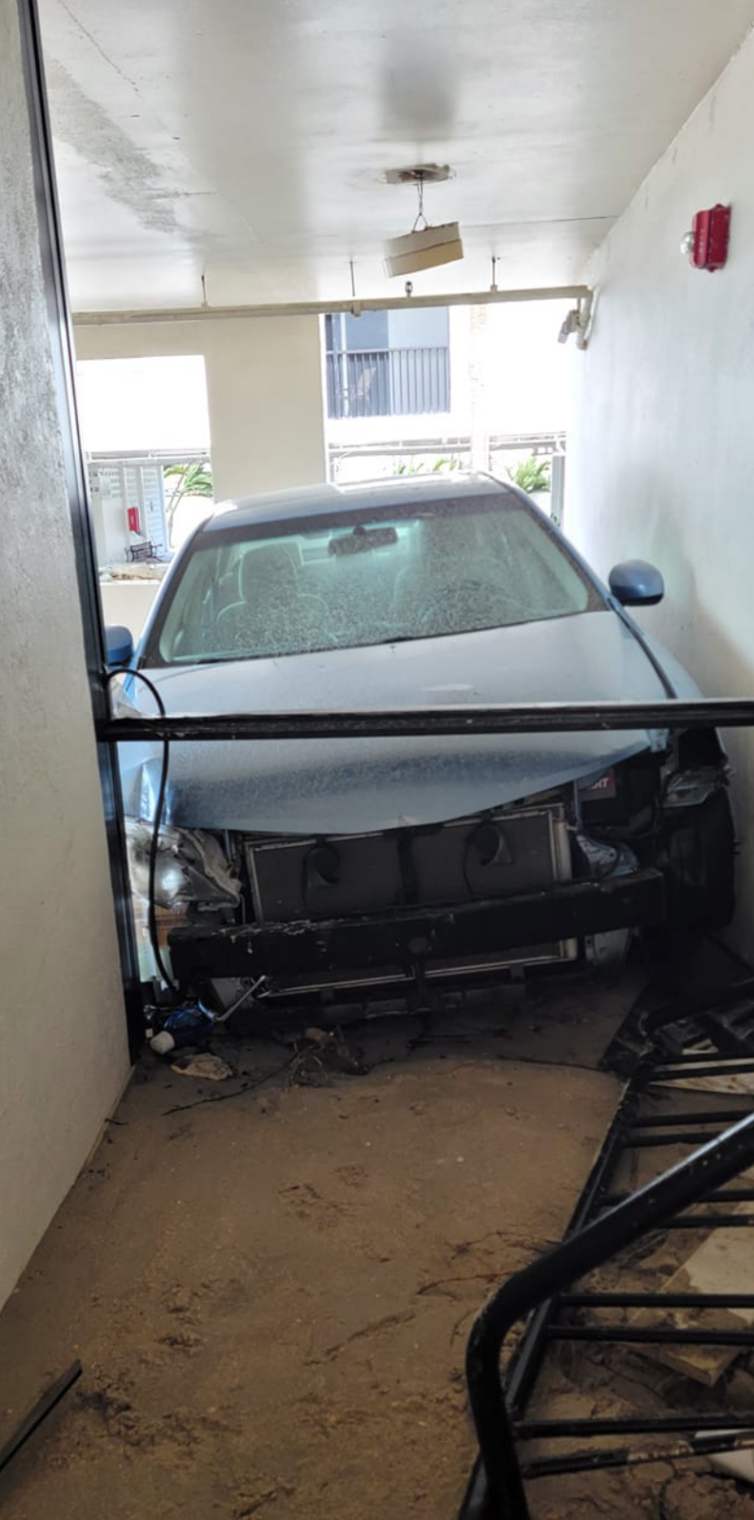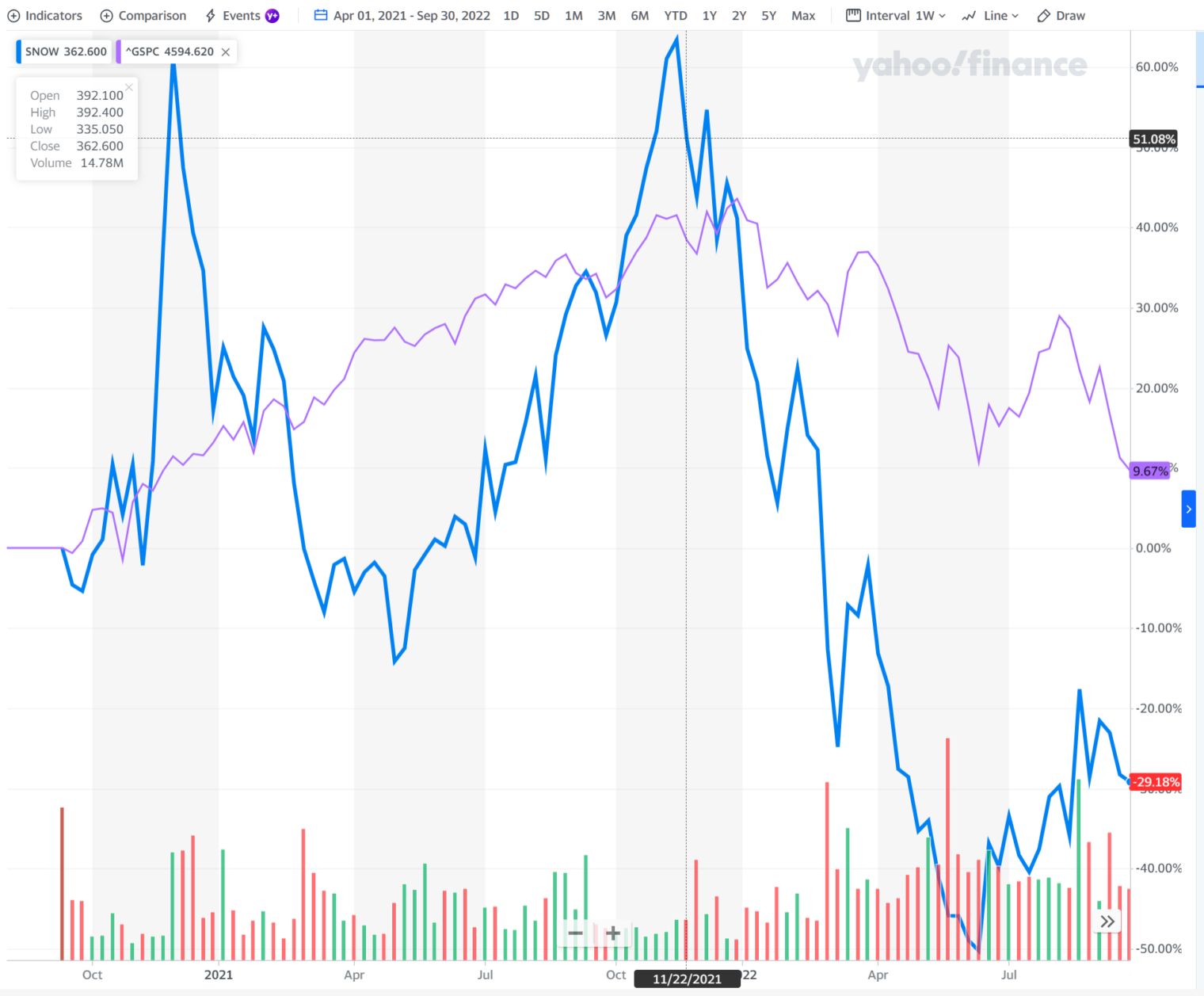The destruction of Florida by Hurricane Ian, as perceived by the coronapanicked
Most of my friends are from the Northeast or California. As such, they’ve been near the maximum panic level for coronapanic since March 2020. Knowing that we’d moved to southeast Florida, these folks contacted us to make sure that a hurricane in southwest Florida hadn’t destroyed our house and killed us. The ensuing phone, email, and text conversations provided a good window into how those who are most fearful of COVID-19 (and most supportive of lockdowns, school closures, forced vaccinations, and forced masking) process news about an unfortunate event.
Let’s start with the official newspaper of the coronapanicked. The New York Times ran stories with “Fort Myers, Fla.” in the dateline, implying that the article was about the mainland city. The photos, however, showed politically distinct towns on barrier islands, such as Fort Myers Beach. They also showed the damaged causeway to Sanibel, another barrier island. Next to some text about damage to houses, the newspaper ran photos of wrecked mobile homes (i.e., trailers) in trailer parks. A lady who has lived in Florida for 50 years said “Why do you think they call them barrier islands?” Example from the NYT combining these two methods:
On Friday afternoon (September 30), a Manhattan-based friend wrote to me about the destruction of Orlando by floods. He had seen it on TV so it must be real. I pointed out that MCO was receiving commercial airline flights, that people were getting off those airliners into rental cars and driving the rental cars to Disney (all four parks were open on Friday, September 30), Universal (park opened evening of September 30), and Sea World (opened Saturday, October 1). The awesome Dezerland was open. All of these places had electric power. Maybe there were a few neighborhoods in Orlando, whose metro population is 2.5 million, that remained flooded, but if the airport and all of the theme parks were opened, did that qualify as catastrophic damage?
Another Manhattan-based mask Karen posted on Twitter about “hundreds” of Floridians having died from Hurricane Ian. That sounds bad, but more than 3,000 out of the 22 million Floridians die each year in car accidents and, in fact, some of the deaths attributed to Hurricane Ian are actually car accidents. Our Karen had never been motivated to express any concern about these deaths and how to reduce them (see my pet idea!). A day after he posted about “hundreds” of deaths, the official tally was in the 20s and ABC was estimating in the 30s. (i.e., more people are killed by car accidents every week in Florida than the number of confirmed deaths from this hurricane) It is sad when people die directly or indirectly from a hurricane, of course, but obesity kills more Americans every day than all hurricanes put together kill in a year.
(This raises the ghoulish question of whether Hurricane Ian might actually reduce the number of deaths among Floridians for 2022. When roads are closed and things are shut down, people don’t drive as much. This cuts into the traffic accident rate and might cut car-related deaths by more than the number killed by the hurricane. A similar phenomenon was observed when the U.S. military went to Saudi Arabia before our first Gulf War. Despite some soldiers killed in combat, lives in the military were saved overall compared to if we hadn’t fought the war. Soldiers couldn’t drink and had almost nowhere to drive, so deaths by car accident were cut almost to zero.)
Our neighbors, most of whom are physicians with low levels of coronapanic, considered the media coverage fake news. “You know that they’re lying to you when you keep seeing the same damaged house from different angles,” was one observation. One neighbor is sheltering a refugee from Fort Myers. As with my friend’s dad, her house was undamaged, but she drove across the state to our sanctuary neighborhood in order to enjoy the luxuries of electric power and Internet.
David Hogg, the survivor-turned-activist, implied that “half” of Florida has been destroyed and will need to be rebuilt:
A year into COVID-19, he wanted all of us to pay each other to stay home:
Despite being decades too young to get a shot in Denmark, he was a vaccine enthusiast:
Has “half” of Florida truly been destroyed? Here’s NOAA’s map of where the agency thinks Hurricane Ian did significant damage. The photos were taken on Thursday, a day after the hurricane.
The NOAA imagery shows that the destruction of Fort Myers Beach might not be complete. Here’s a typical part of the barrier island that is not a trailer park:
There is a lot of debris, but nearly all of the houses appear to be standing. Here’s what it looked like before (from Google Maps):
Related:
Full post, including comments




















